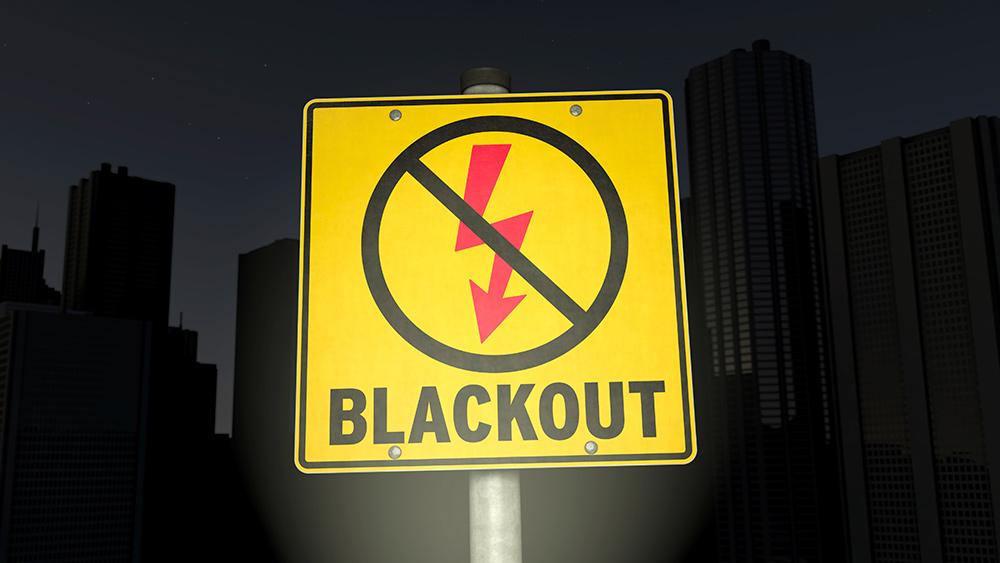Hegseth delivers reality check on Ukraine: U.S. can’t keep funding war, calls for realistic peace deal
By isabelle // 2025-02-14
Tweet
Share
Copy

- U.S. Secretary of Defense Pete Hegseth called Ukraine’s goals of reclaiming pre-2014 borders and joining NATO “unrealistic,” urging diplomacy to end the war.
- Hegseth stressed the U.S. cannot indefinitely fund Ukraine’s military and urged European nations to take on more financial responsibility.
- The Trump administration is pushing for a negotiated peace deal, ruling out U.S. troop deployment to Ukraine.
- Hegseth called on NATO allies to increase defense spending to 5% of GDP, emphasizing European responsibility for continental security.
- The U.S. is shifting focus to domestic security and countering China, signaling a reduced role in Europe’s defense.
Ukraine needs to be realistic
Hegseth minced no words in his assessment of Ukraine’s war goals. “But we must start by recognizing that returning to Ukraine’s pre-2014 borders is an unrealistic objective,” he said. “Chasing this illusionary goal will only prolong the war and cause more suffering.” The statement directly challenges Ukrainian President Volodymyr Zelenskyy’s long-standing demand for the full liberation of Russian-occupied territories, including Crimea, which was annexed by Russia in 2014. While Hegseth expressed support for a “sovereign and prosperous Ukraine,” he made clear that NATO membership is off the table for Kyiv. “The United States does not believe that NATO membership for Ukraine is a realistic outcome for a negotiated settlement,” he said. Instead, he proposed that any future security guarantees for Ukraine be backed by European and non-European troops, but explicitly ruled out the deployment of U.S. forces. “To be clear, as part of any security guarantee, there will not be U.S. troops deployed to Ukraine,” Hegseth stated, a position that aligns with President Trump’s firm stance against involving American soldiers in foreign conflicts.Trump’s push for a peace summit
The Trump administration has been quietly working behind the scenes to broker a peace deal between Russia and Ukraine. In a recent interview with Fox News, President Trump revealed that “tremendous progress” has been made in recent weeks, though he stopped short of providing specifics. “They may make a deal. They may not make a deal,” Trump said, referring to Ukraine and Russia. “We can’t continue to pay this money, you know.” Trump’s comments reflect his administration’s broader frustration with the billions of dollars the U.S. has poured into Ukraine’s war effort. Hegseth echoed this sentiment, urging European allies to “step up” and fulfill their commitments to Ukraine’s security. “We ask each of your countries to step up on fulfilling the commitments that you have made, and we challenge your countries and your citizens to double down and recommit yourselves, not only to Ukraine’s immediate security needs but to Europe’s long-term defense and deterrence goals,” he said. The defense secretary also called on NATO members to increase their defense spending to 5% of GDP, a significant jump from the current 2% target. “Increasing your commitment to your own security is a down payment for the future,” Hegseth said, signaling a shift toward greater European responsibility for continental defense.A shift in U.S. priorities
Hegseth’s remarks highlight a broader recalibration of U.S. foreign policy under the Trump administration. With China emerging as a “peer competitor” and domestic border security taking precedence, the U.S. is no longer willing to serve as Europe’s primary security guarantor. As the war in Ukraine approaches its third anniversary, Hegseth’s blunt assessment offers a sobering reality check: the U.S. cannot indefinitely fund a conflict with no clear resolution. By urging reason and diplomacy, the Trump administration is signaling a desire to wind down American involvement and refocus on pressing domestic and global challenges. While the road to peace remains fraught with obstacles, Hegseth’s call for a negotiated settlement and greater European responsibility may offer a glimmer of hope for ending the bloodshed. For the U.S., the priority is clear: stop the flow of taxpayer dollars to Ukraine and secure a lasting peace that allows America to focus on its own security and strategic interests. Sources for this article include: News.Antiwar.com FoxNews.com ABCNews.go.comTweet
Share
Copy
Tagged Under:
Donald Trump Russia NATO World War III Ukraine national security politics Europe White House big government truth chaos rational progress honest Russia-Ukraine war Hegseth
You Might Also Like
I Want My Bailout Money – new song and music video released by Mike Adams
By Mike Adams // Share
Israeli outrage as Hamas misidentifies hostage remains, jeopardizing fragile truce
By Cassie B. // Share
Recent News
Earth-like soil patterns on Mars reveal clues to the planet’s climate history
By willowt // Share
Virologist who endorsed HCQ for COVID-19 appointed to top pandemic post at HHS
By ramontomeydw // Share










